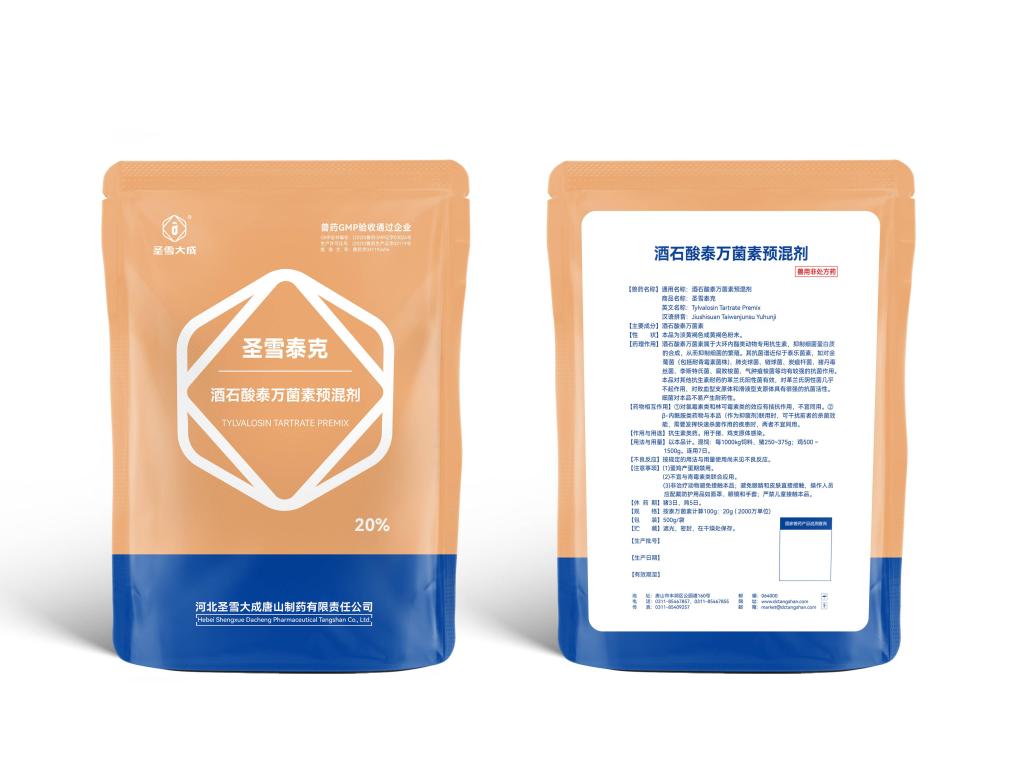Tel:+8618231198596

News
 CONTACT
CONTACT
 CONTACT
CONTACT
- Linkman:Linda Yao
- Tel: +8618231198596
- Email:linda.yao@dcpharma.cn
- Linkman:CHARLES.WANG
- Department:Overseas
- Tel: 0086 0311-85537378 0086 0311-85539701
News
Veterinarians consider the long-term benefits of tylvalosin tartrate premix on herd health.
TIME:2024-08-09
Understanding Tylvalosin Tartrate Premix
Tylvalosin Tartrate Premix is a macrolide antibiotic that is commonly administered to livestock, particularly pigs and poultry, via their feed. It is effective against a wide range of Gram-positive bacteria and some Gram-negative bacteria, making it useful in the prevention and treatment of several bacterial infections, including respiratory and enteric diseases.
Preventive Measures
One of the primary reasons veterinarians advocate for the use of Tylvalosin Tartrate Premix is its preventive capabilities. By regularly administering the antibiotic, farmers can reduce the incidence of diseases such as swine dysentery, porcine respiratory disease complex (PRDC), and other conditions that can significantly impact the health and performance of the herd.
Reducing Antibiotic Resistance
Antibiotic resistance is a growing concern in veterinary medicine, as it can compromise the efficacy of treatments. Tylvalosin Tartrate Premix, when used responsibly and under veterinary guidance, can help minimize the development of antibiotic resistance. By targeting specific pathogens and using the antibiotic judiciously, veterinarians can preserve the effectiveness of the drug for future use.
Enhanced Immune Function
Another benefit of Tylvalosin Tartrate Premix is its ability to support the immune system of the animals. By controlling bacterial infections, the antibiotic reduces the overall burden on the immune system, allowing the animals to focus their resources on growth and development rather than fighting off diseases. This results in healthier animals with better growth rates and feed conversion efficiency.
Improved Gut Health
Maintaining a healthy gut is essential for the overall well-being of livestock. Tylvalosin Tartrate Premix helps to stabilize the gut microbiota, which can contribute to better digestion and nutrient absorption. This, in turn, leads to improved animal performance and a reduction in the occurrence of digestive disorders.
Economic Benefits
From an economic standpoint, the use of Tylvalosin Tartrate Premix can lead to significant cost savings for farmers. By reducing the prevalence of diseases and improving the health status of the herd, farmers can expect lower mortality rates, reduced treatment costs, and higher marketable yields. These factors collectively contribute to a more profitable and sustainable operation.
Sustainable Use
Veterinarians emphasize the importance of using Tylvalosin Tartrate Premix in a sustainable manner. This includes adhering to withdrawal periods, monitoring for signs of resistance, and employing alternative management strategies where possible. Responsible use ensures that the antibiotic remains effective and minimizes environmental impacts.
Conclusion
Tylvalosin Tartrate Premix offers numerous long-term benefits for herd health when used appropriately. Veterinarians play a vital role in guiding farmers on the proper use of this antibiotic, promoting both the health of the animals and the sustainability of livestock operations. By considering the broader implications of antibiotic use, veterinarians can help ensure that livestock production remains productive, efficient, and environmentally sound.
- Tel:+8618231198596
- Whatsapp:18231198596
- Chat With Skype







